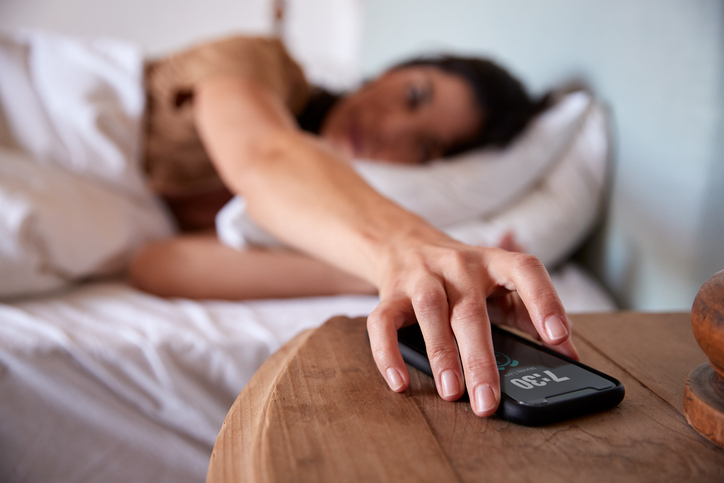How Daylight Saving Can Affect Your Sleep
Author: Lindsey Ulrich

Daylight saving time begins on Sunday, March 12, at 2 a.m., when clocks move forward one hour. Time change can alter your sleep schedule, and sequentially affect your mood and cause sleepiness that can linger for days to weeks.
To minimize the effects, Salah Aboubakr, MD, FCCP, FAASM, a pulmonologist and medical director at the Sleep and Alertness Center at McLaren Greater Lansing, recommends some tips on how to manage sleep adjustments.
Follow a sleep schedule.
“Maintaining a fixed wake-up time and sleep pattern is essential,” said Dr. Aboubakr. “Try to avoid napping, which can cause a disruption in a good night’s sleep.”
Daylight saving time can affect our circadian rhythm by confusing our biological routine. Adjusting your sleep schedule ahead of daylight savings time by 15-minute increments can help with the time change.
Avoid caffeine, nicotine, and alcohol before bedtime.
“Caffeine, alcohol, and nicotine are stimulants and can make it difficult to go to sleep after consuming them,” said Dr. Aboubakr.
It is best to avoid these stimulants several hours before going to sleep.
Shut off electronic devices an hour or more before bed.
Cell phones and other electronic devices emit blue light, which restrains the production of melatonin. This hormone controls your circadian rhythm and affects when you feel tired and awake. It’s best to put down the devices an hour or so before going to sleep.
Create a good bedroom environment.
Making a comfortable sleeping space includes making sure your bedroom is clean, organized, dark, quiet, and at a comfortable temperature.
Getting a good night’s rest has many benefits to your overall health and well-being. The recommended amount of sleep varies by age. For adults, getting 7 to 9 hours of sleep is recommended to feel fully rested.
The McLaren Greater Lansing Sleep and Alertness Center can help you get a better night’s rest through the diagnosis and treatment of sleep disorders such as sleep apnea, narcolepsy, insomnia, and restless leg syndrome. If you are experiencing restless sleep that is affecting your quality of life, talk to your primary care physician.
To take our sleep questionnaire online, click here.
Looking for a new primary care provider? Click here to see a list of providers accepting new patients.
For more articles on health and wellness, click here.